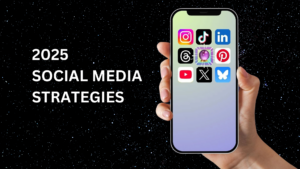The Art Of Storytelling Through Data
In this episode of Five Questions with… I am talking with JLA Analytics founder Julie Alig about the art of storytelling with data in business and how to present complex stories with data. This is part two of the interview. You can find the first episode on Visual Storytelling With Data here.
How do you come up with the question that you're going to tell the story around?
Definitely in a conversation, it’s a back-and-forth with the customer. That’s the way I do it. That’s the way I’ve found the strongest results come out.
I might be the person in the room who has the most experience with research methodology, with statistical tools, this, that, the other. I’m not the subject matter experts of what my clients are. In my mind, any good research project – kind of like this – needs to be a collaboration between the subject matter expert and the people with the tools and expertise.
Working with my clients, I really like to have that kind of conversation or communication continue, and if anything I like to over-communicate, because I want to make sure that I’m going in the right direction. I think I responded to one of your posts on LinkedIn and said something like,”Let your client, or their questions, be your North Star.”
That needs to be what I’m focused on. That’s where I find the best results with my clients.
Four Tips To Successful Storytelling
I sit in all these meetings, I get Powerpointed to death, with slides with a gazillion data points on them. We spoke about taking this data, understanding the North Star, answering the questions, pulling it together so you can tell a story with it, but now you have to deliver it.
What’s your tips and tricks for boiling that down, putting it onto paper so that people in the room can understand it and so when it gets passed around outside the room they can still follow the story.
That’s the question isn’t it? That’s the 64 million dollar question!
I think that’s where a lot of your skill and expertise come into play. You really have to distill down all the findings into something very short and small. I forget who but there was a British author who said,
1. You have to be concise and get right to the point.
I would say the tip is: A – keep going back to those original questions and make sure that you’re still focused on those. B – I really get a lot out of visuals.
2. Communicate so much with visuals
I was just on a call with a colleague last week, and she was talking about a process, and I whipped out my journal and drew a little picture, and held it up for her, and she was like,”that’s exactly it!” She got it.
So I think we’ve all been in those situations. The danger though is that you’re going to load up too many ideas and too many concepts into one poor little graphic or image. I really like using maybe a couple of visuals to tell a story, and in a storyboard kind of manner.
3. Stick to the basics, and throw everything else in the appendix.
That’s kind of what I used when I was writing my dissertation in grad school. All those great supporting analyses, stick ’em in the appendix.
I love that storyboard analogy. It’s like these are the ones you can always pop out and say, “Okay are we gonna use these images in this order? Is it telling the story that we want?” Instead of “well there’s a slide, and now there’s another slide…”
4. That you and your client or customer are on the same page.
So, especially from that first slide, statement of the problem, statement of the question, and what you’re going to do with it.
Recent Posts

Generative Engine Optimization (GEO)
Generative Engine Optimization (GEO): The Future of Search and How It Differs from SEO As digital marketing continues to evolve, search is undergoing a radical

Best Practices for Building a Brand Presence on YouTube
Updated Best Practices for Building a Brand Presence on YouTube (2025) YouTube continues to be a dominant platform for video content, offering businesses unparalleled opportunities

Best Practices for Building a Brand Presence on Instagram
Best Practices for Building a Brand Presence on Instagram (2025) Instagram continues to dominate as a platform for visual storytelling, brand development, and audience engagement.

Social Media Strategies
10 Proven Social Media Strategies to Dominate in 2025 In the dynamic landscape of 2025, mastering social media requires a strategic approach tailored to evolving

Definitive Guide To Building Your Brand Presence on Twitter
Updated Best Practices for Building a Brand Presence on X (2025) X (formerly Twitter) continues to be a powerful platform for real-time conversations, customer engagement,

Definitive Guide To Building Your Brand Presence on LinkedIn
Updated Best Practices for Building a Brand Presence on LinkedIn (2025) LinkedIn remains the premier platform for professional networking and B2B marketing, offering businesses unparalleled